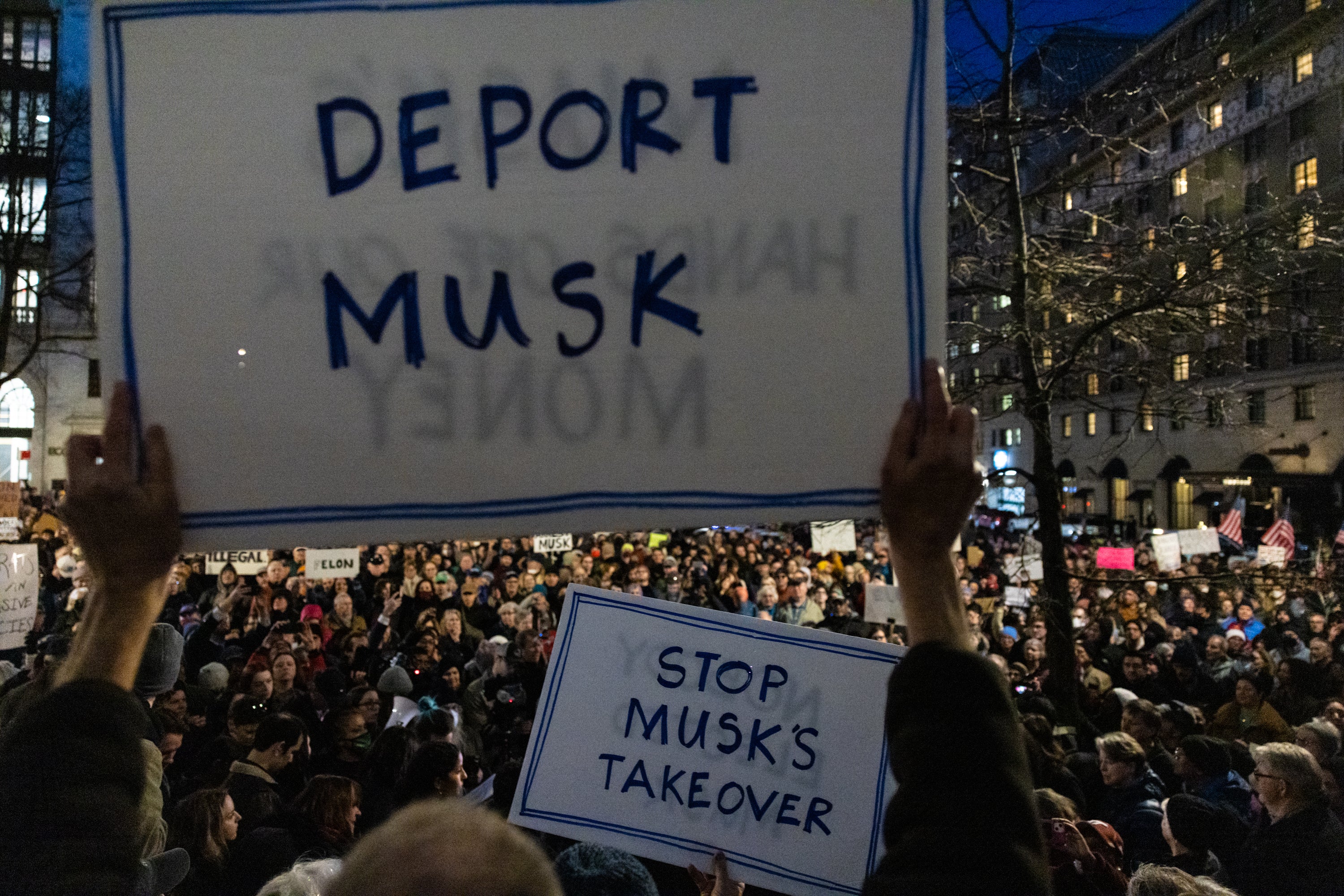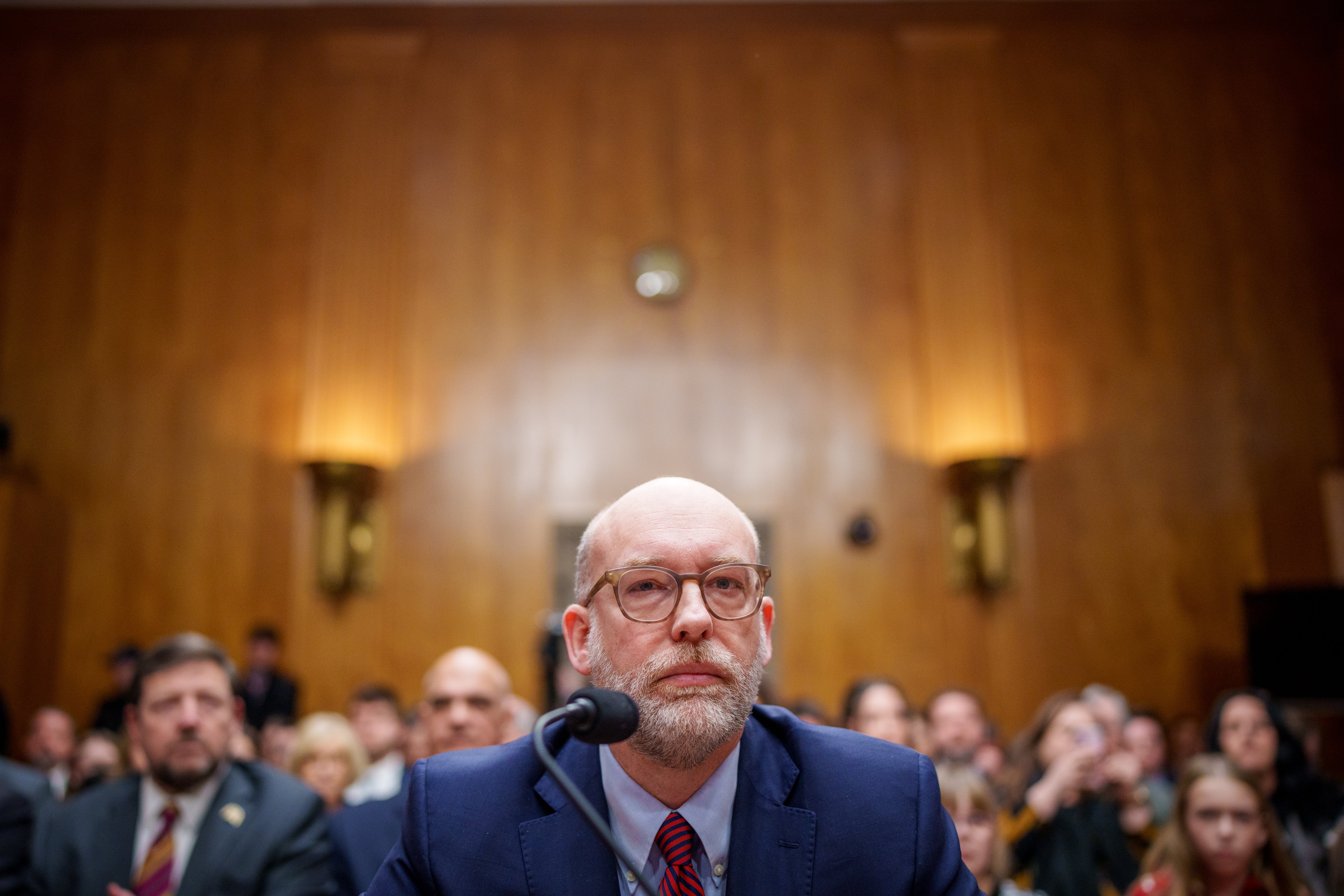
Billionaire Elon Musk and his hand-picked team of “young, inexperienced engineers” wrested control over the past several days of highly sensitive systems within the Consumer Financial Protection Bureau, reportedly gaining access to nonpublic bank examination and enforcement records, raising broad concerns about how the world’s richest man may use the confidential information.
Now, alarmed CFPB employees — who have been locked out of their offices by Project 2025 architect Russell Vought, an alum of the right-wing Heritage Foundation’s lobbying arm and the acting head of the agency as of last Friday — fear Musk’s callow band of 19 to 25-year-olds have also been given carte blanche to rummage through, and potentially disseminate, highly sensitive personnel files, leaving them vulnerable to, among other things, blackmail attempts.
That’s according to a federal lawsuit filed Sunday against Vought by the union representing more than 1,000 current and former CFPB staffers, which contends there are “no known security constraints and zero oversight regarding the disclosure of [their] personal information to DOGE,” or Musk’s so-called Department of Government Efficiency, which has eviscerated numerous federal agencies since Donald Trump regained the Oval Office three weeks ago. Musk has since been the focus of widespread protest by Americans disturbed by the notion of an unelected, foreign-born plutocrat with no government experience being given free reign to reshape the federal administrative apparatus as he sees fit.
Attorneys Allison Giles, Paras Shah, and Julie Wilson of the National Treasury Employees Union, who are representing the CFPB workers, did not respond to requests for comment on Monday from The Independent.

An executive order Trump signed on January 20, the day he was inaugurated, created DOGE out of thin air, with what he said would be a focus on “modernizing Federal technology and software to maximize governmental efficiency and productivity.”
The lawsuit names three DOGE “special government employees,” a classification for temporary hires limited to working 130 days or less in a calendar year, who have allegedly been allowed into CFPB systems: former Twitter engineer Nikhil Rajpal, GOP field operative Chris Young, and Gavin Kliger, a software engineer who most recently worked at AI firm Cloudbricks. At least one DOGE employee resigned after past racist social media posts he made were discovered; Musk and Vice President JD Vance subsequently vowed to rehire him. Another just graduated from high school last year, and worked as a bicycle mechanic and a camp counselor before Musk brought him onboard at DOGE.
In addition to blackmail, the suit says CFPB employees worry that the DOGE team “will get access to their reports on enforcement or supervision activities and use that information to retaliate against them.”
Specifically, they are troubled by the possibility that closely guarded confidential employment, credit, and medical records could be used to unilaterally cut their salaries and benefits, to interfere with their ability to get loans, to obtain future employment, to deny them childcare, or to facilitate identity theft, the lawsuit states.
CFPB has “a statutory responsibility to protect the information that it collects and maintains about its employees from unlawful disclosure to third parties,” the suit continues. However, it has “acted contrary to law and regulation by granting DOGE and its members access to the records that the Bureau collects and maintains about every CFPB employee,” according to the suit.

On February 7, Rajpal, Young, and Kliger were added to CFPB’s staff and email directories as “senior advisers,” the lawsuit states, noting that the three “are not and have never been CFPB employees.” That same day, Musk posted “RIP CFPB” on X, the social media site he now owns.
Nine days earlier, X publicly announced that it had made a deal with Visa to process peer-to-peer payments, Bloomberg reported. This, according to the outlet, likely means CFPB oversight for X, as Musk’s DOGE crew roots around in CFPB for business intelligence that could give X an advantage over its rivals in the space.
“What we're seeing is unprecedented in that you have these actors who are not really public officials gaining access to the most sensitive data in government,” Don Moynihan, a professor of public policy at the University of Michigan, said of DOGE in a February 2 interview with Wired. “We really have very little eyes on what's going on. Congress has no ability to really intervene and monitor what's happening because these aren't really accountable public officials. So this feels like a hostile takeover of the machinery of governments by the richest man in the world.”
In their lawsuit, the CFPB employees ask that a judge declare illegal DOGE’s access to their personnel files, and to bar them from continuing to harvest restricted data. The union also filed a companion lawsuit over the weekend, pushing back on Vought’s efforts to halt their work and shutter the agency.







